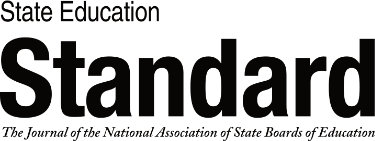America’s future depends upon its citizens’ basic science literacy. Soon the country will be relying on students in classrooms today to spur the discoveries needed to save lives, stave off disease, and protect the planet and to join the wide swath of professions that once did not require such knowledge and skills but now do. All students deserve the urgent efforts of educators and policymakers, state boards of education included, to strengthen science education. Without improved K-12 science performance and universal access to effective science teachers and high-quality science instructional resources, the states and the nation will struggle.
Also In this Issue
The Impact of COVID-19 on Math Achievement
By Jennifer Sattem, Matt Dawson and Elizabeth PeyserWithout urgent attention, the problem of unfinished learning will compound as students advance to later grades.
High-Dosage Tutoring
By Beth SchuelerStrong evidence points to equity and well-being benefits from well-designed programs.
Advancing Science Instruction
By Bobbi NewmanState boards can lean into efforts to boost K-12 science literacy and beef up access to high-quality, inquiry-based education.
The Urgent Need for Tailored Math Instruction
By Joel Rose and Michael WatsonStates can shift away from grade-level myopia to help students catch up.
10 Lessons Learned from the Science Classroom
By Ryan FuhrmanExperience with high-stakes accountability informs teacher's standards setting on the state board.
Mulling Changes to Math Instruction
By Jo Boaler and Jennifer Langer-OsunaA framework proposed in California seeks to boost achievement by increasing the engagement of all students.
Achieving Equity and Excellence in Mathematics Teaching
By Yasemin Copur-GencturkStates should revamp how teachers are equipped to deliver effective instruction.










 i
i
 i
i